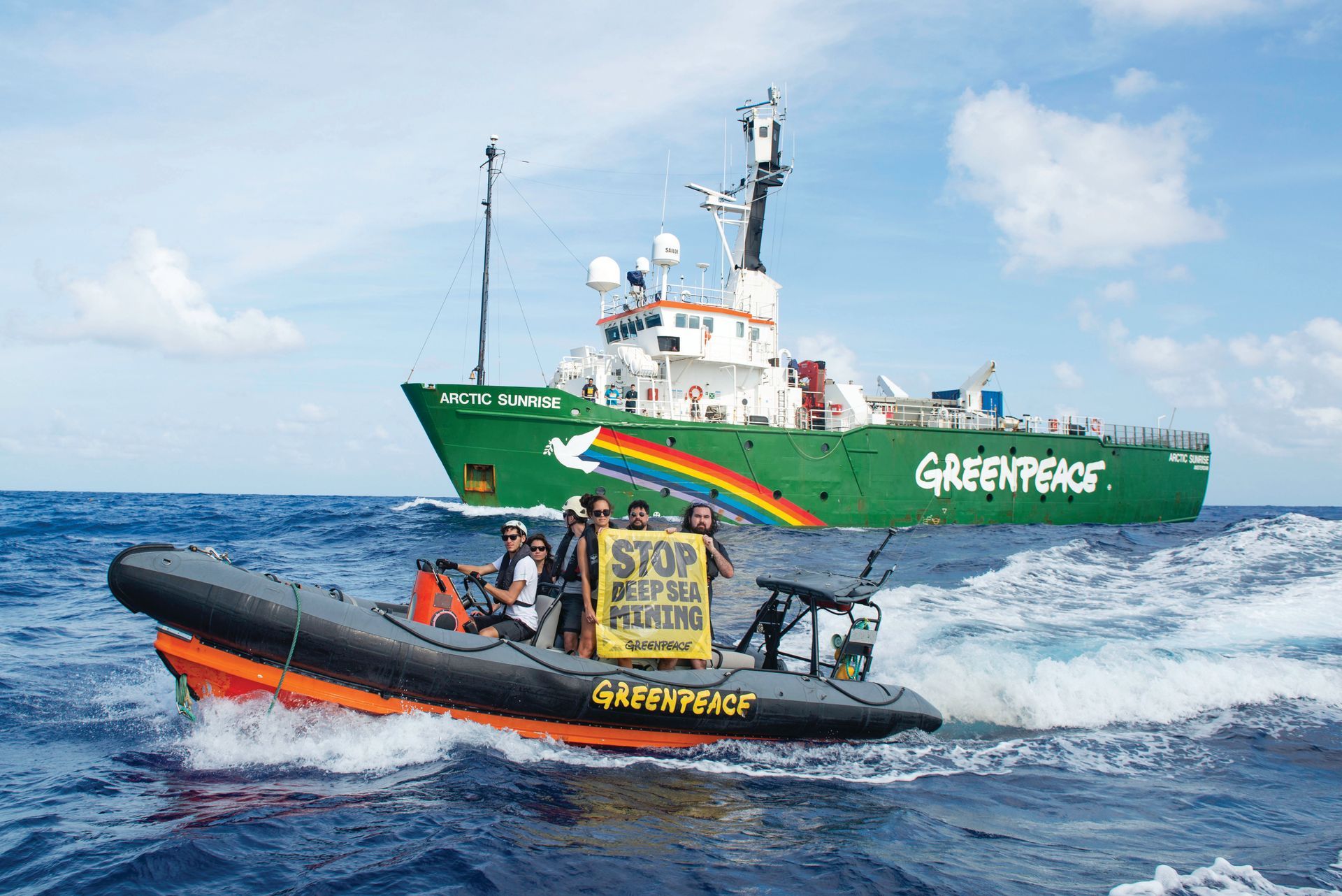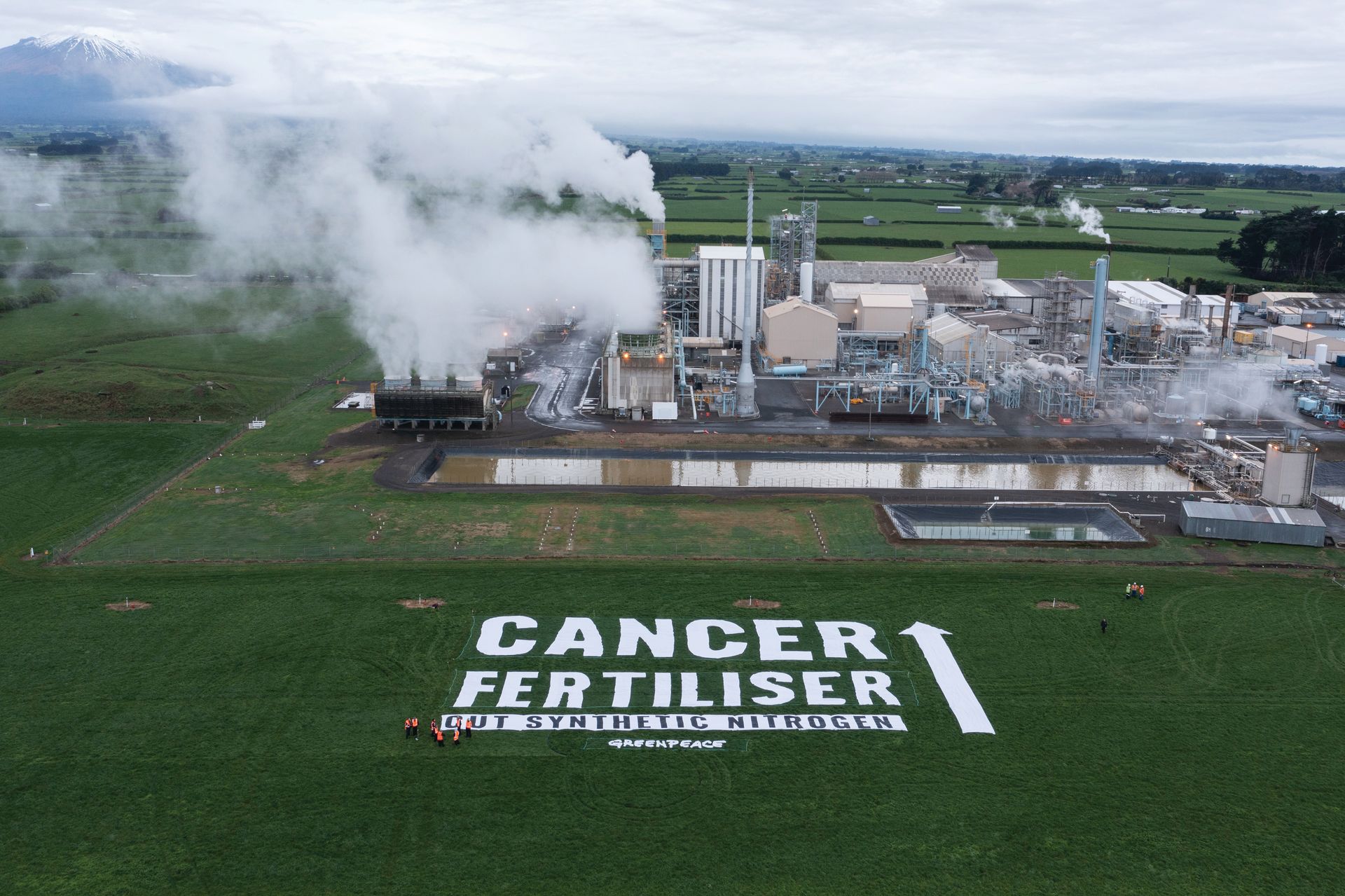
Greenpeace's never-ending battle
Words: Anna King Shahab
Photography: Blink & Supplied
Anna King Shahab talks to Russel Norman about our most pressing environmental issues
Tucked down the cul-de-sac end of Akiraho Street in a building backing onto Uptown’s future gateway to the CRL is the headquarters of Greenpeace. For more than 50 years the not-for-profit organisation has championed environmental causes and the walls of the office are lined with posters from those five decades; images and artworks that have become part of popular culture (Tom Burnett’s No Driftnets and Dean Buchanan’s Endangered posters are the backdrop to my own 1980s childhood). It’s disappointing that Greenpeace's sagacity and tenacity are needed now more than ever, as Aotearoa, New Zealand and the world face entrenched and imminent threats.
Sitting down for a chat with Greenpeace Aotearoa’s Executive Director Russel Norman, I ask him which of those threats are most pressing in this country right now.
The issues that we're particularly focused on are climate change and biodiversity,” says Russel. And when it comes to those two topics, agriculture is a key threat. “Agriculture is our biggest climate polluter, having a massive impact on freshwater ecosystems as well as human health. Hundreds of thousands of people are drinking water from their own private bores, often impacted by intensive agriculture and highly contaminated with nitrates. We do free water testing, so people can test the amount of nitrate in their drinking water.
“At the freshwater ecosystem end, we have a government that’s trying to change the rules to allow a lot more pollution, so we've been doing a lot of campaigning around freshwater ecosystems.” And then there’s emissions – the methane and nitrous oxide produced by agriculture are a big contributor to climate change, says Russel.
As his big shaggy black dog Tilly vies for attention, leaning against me for a chest scratch, Russel explains that our oceans are another of the big areas of concern for Greenpeace.
There are huge areas outside any country’s jurisdiction, putting them at risk of exploitation, and Greenpeace worked long and hard to get the UN Global Oceans Treaty over the line. After that’s ratified, he says the next phase will be identifying areas to be protected and ensuring that happens.
“We’re also very focused on sea mounts,” he says. Rich in biodiversity, sea mounts are targeted by bottom trawlers in what Norman describes as “an immensely destructive practice” that decimates life on the ocean floor, from sponges to slow-growing corals that are thousands of years old. Campaigning for restrictions has been successful in some areas, he says, but there’s plenty of work to be done yet.

Deep-sea mining is the subject of a current global campaign for Greenpeace. “The last great wilderness on planet Earth is the deep sea,” says Russel. “When I was growing up, we used to think of the deep sea as this vast thing that was dark and just kind of dead – but with every expedition over time we’ve discovered hundreds of new species.” Much of it is still untouched by humans, and although it is indeed vast, mining will quickly change that. “The areas that would be mined are huge. Only the top 10cm or so is mined, so to get the volume of materials, tens of thousands of square kilometres will need to be mined. This doesn’t only destroy the areas that are mined, either – the sediment plumes travel great distances through the ocean, disrupting filter feeders.”
On our doorstep, Greenpeace has been integral in the fight against an imminent threat to our oceans, the proposed seabed mining of the South
Taranaki Bight, an area particularly rich in marine biodiversity. A 2018 High Court ruling quashed the resource consent originally granted to Trans Tasman Resources (TTR) and in 2021, TTR’s appeal to have the decision overturned was dismissed by the Supreme Court. “The current government is looking at ways to get around that Supreme Court decision,” says Russel. The battle isn’t over.
I ask Russel whether that’s just one aspect of a significantly increased workload faced by Greenpace as a result of the change of government in 2022. “Yes, our workload has increased,” he says “This government has made no pretence about its anti-environmental agenda. “It has engaged in a war on nature – there’s virtually nothing that isn’t under attack, with all environmental rules at risk of being undermined by the Government’s Fast-track Approvals legislation”. Mass protest across the country in response to the proposed bill has had an impact on its progress. The bill has been amended, with final decisions resting with an expert panel, but in Greenpeace’s view that merely makes it a wolf in sheep’s clothing; it still seeks to bypass layers of protection of the environment.
Whether you're looking at fast-tracking environmental decisions, oil and gas exploration, weakening freshwater protection rules that in turn allow more pollution of the freshwater environment, getting rid of the clean-car discount, weakening regulations around fuel efficiency of imported vehicles, cutting spending on public transport and increasing it on roading, “you name it, they’re doing it”, says Russel.
There is a glimmer of hope amid what Norman describes as a siege on the environment by our government, and that’s the fact that the brutality of it (the likes of which has “not been seen since the Muldoon era”) has motivated people across Aotearoa to abscond from what he describes as the honeymoon period typically granted by default to most new governments here, and to protest – as evidenced in the rallies against the Fast-track Approvals Bill in June this year. “It was remarkable how many angry people there were – people thinking ‘Why is the Government attacking all of the environmental protections that make New Zealand a special place?’”
Concern for the environment – an interest in mitigating climate change and
preventing the decimation of biodiversity – crosses political boundaries. “There are plenty of people who voted for the National Party in the last election who care deeply for the environment,” says Norman. “I’ve been campaigning on environment issues since the late 1980s and there is a much broader buy-in from the general population now than there was back then. Back then it was a relatively small group of people who understood climate change and could talk about the science of it, whereas nowadays, it’s kind of obvious what’s happening.
“The large majority of people in this country do want to protect the environment,” asserts Russel. ”It's not always clear to people exactly the right way to do that.” He urges New Zealanders to exercise their citizenship rights – write, sign petitions, attend protests – to apply pressure against the anti-environment political agenda. “Use your democratic rights. People fought hard to get democracy, so use it.”



